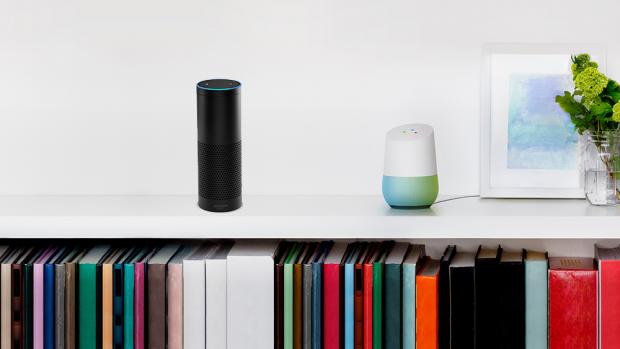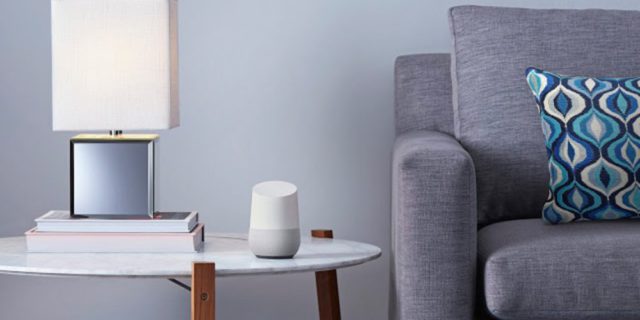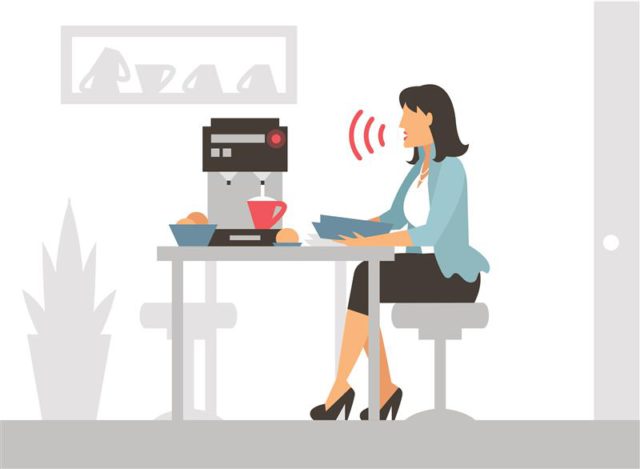The innovative development of voice-controlled 'smart' devices requires a rethinking of certain concepts and approaches that apply to smartphones.

There has been a lot of writing lately about the growing importance of voice-controlled devices such as Amazon Echo, Google Home and others. At the same time, there is a long-held opinion among the majority that software innovations will become the key “engines” of the industry's development. I am reminded of the famous expression of venture capitalist Mark Andreesen, “Software is swallowing the world.” Consequently, the combination of these two aspects – software for computing devices with voice control – will become the highest point in the development of the industry. In fact, many companies are now innovating to create new types of software for these special devices.

The problem is that expectations from such software quickly exceed reality. For example, literally this week, some fascinating stories came out about a new study of the additional capabilities of Alexa and similar voice-based applications for the Google Assistant platform, which runs Google Home. According to research, 'add-ons' are characterized by relatively low usage and retention [users]. The main idea of the research was the idea that in addition to the key functionality of the device, only certain applications have additional potential. Between the lines, you can see that, in the opinion of the authors, voice-based computing may ultimately not be that big opportunity.
While it is not so difficult to trace the logical path to such a conclusion, I believe that it is due to misinterpretation of the results and misconceptions about the potential of such devices. The real problem is that people are trying to apply the business model and approach to writing applications that are typical for smartphones to a new type of device. In the new world of voice-controlled computing, such a model will not work. It's common for people to apply old rules to new situations, this is the easiest way. It should be remembered that at the time when smartphones first appeared, people did not fully understand the very concept of mobile applications, because they were used to 'large', monolithic applications on the PC. And it didn't make much sense for them to run 'heavy' applications on small screens with rather low-powered (at that time) processors.

In an essentially similar way, we need to understand that smart speakers and other voice-controlled devices are not smartphones without a screen, they are a new class of devices, they stand apart and have completely different software requirements. Not all of these requirements have been established at the moment (this is partly an interest in finding out what computing paradigm is inherent in new gadgets), but people in any case will not look for software 'add-ons' that are not of significant benefit. In addition, people deprived of the benefits of a screen cannot remember a large list of keywords for launching additional applications. Common sense dictates that the final possible number of 'skills' in the final device will be very limited.
Last but not least, many users find it difficult to understand the very idea of adding applications for a voice 'assistant'. The very concept of an 'intelligent assistant' includes the ability to talk to him and he must understand incoming requests. And it will not be so easy to get an understanding of the idea of 'filling the gaps' in his knowledge (and maybe his virtual 'personality'). People need natural and working voice interactions. Dot. A company that succeeds on this front will have a clear advantage.
All these doubts do not mean at all that voice-controlled devices will not receive those great opportunities for development, but most likely they will not be able to make money on 'skills'. Most of the capabilities will be provided by the device manufacturer, and most of the revenue-generating services will be developed by the same company. In other words, it will be much more important for manufacturers of a new category of devices to own the platform and they will need to build their activities in accordance with this idea.
Well, you shouldn't 'bury' additional applications ahead of time. For example, key services such as music streaming, as well as add-ons to the main components of a smart home, which in turn can be configured using voice commands, will become obviously significant and necessary capabilities that users will be happy to add to their devices. . In each of these cases, it is important to understand that the software itself will not be an income opportunity, but only a method of accessing an existing service or device.
It will take years for new types of computational models to fully enter the mass market, and if we talk about voice control interfaces, then we can now only see the beginning of the path. It is important to realize that the existing business model and current ways of understanding the role of technology do not always translate well into the new environment, so new rules for computation based on voice commands need to be developed.
Original material by Bob O'Donnell
Obviously, the path of least resistance is completely unacceptable for a new class of 'smart' devices, it will be necessary to rethink the approach to creating applications that has become customary, otherwise the speed of technology development will be significantly affected and entry into the mass market will be delayed. The author quite clearly emphasizes the need to slightly change the logic of thinking of users so that they can understand the features and understand the logic of operation of devices with voice control. Yes, it won't be easy, but we didn't come to smartphones right away. Hopefully, the experience we have already gained in the development of mobile electronics will help in the development of another new class of devices.
